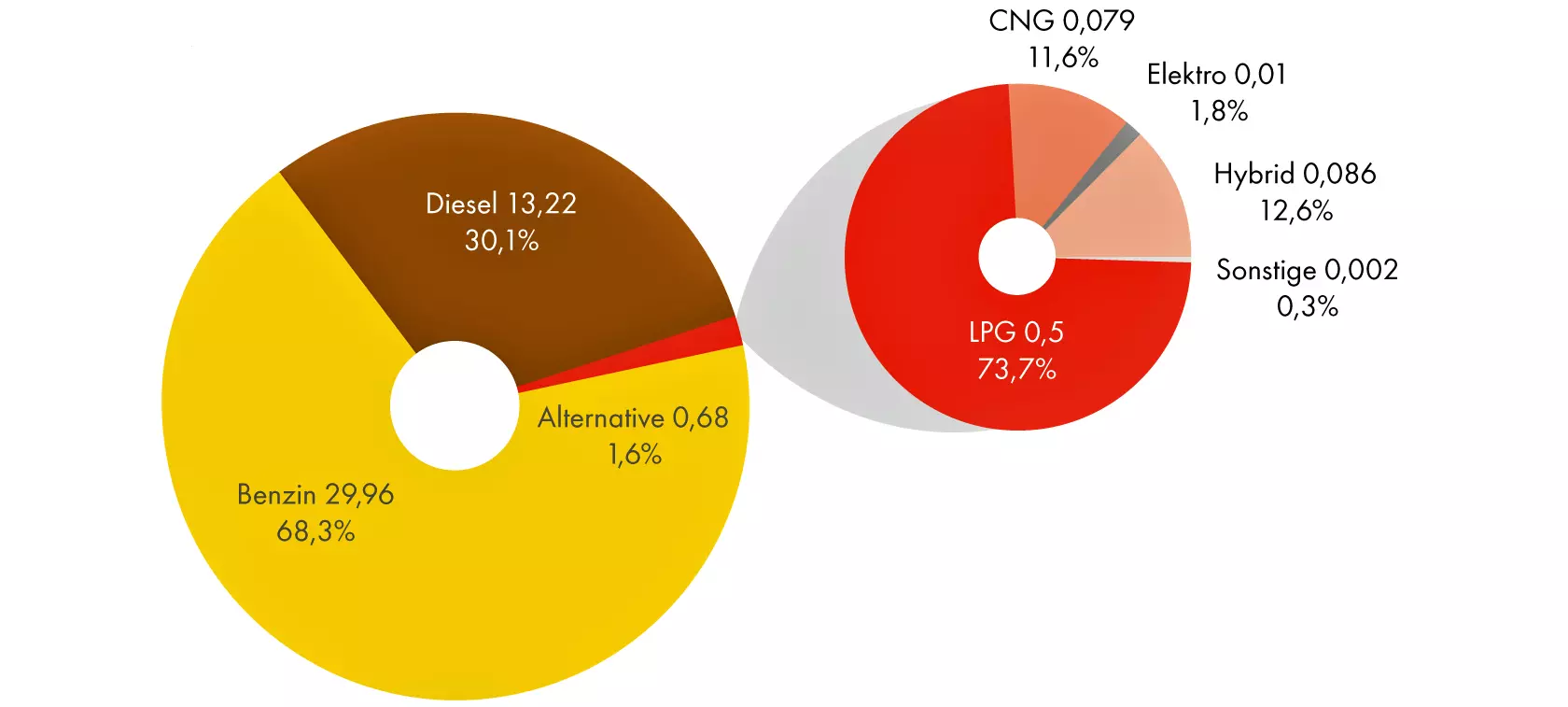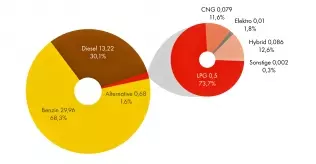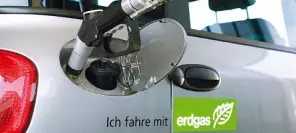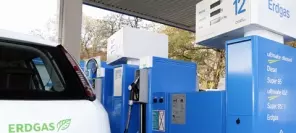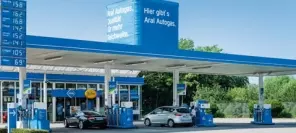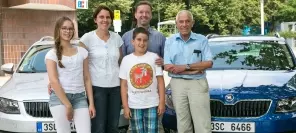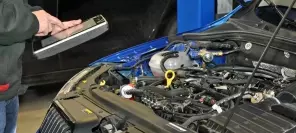- Main page
- Search
- Up to date
- Products
- Technology
- Vehicles
- Video
- Conversion Payback Simulator
Port Injection - Conversion Payback Simulator
Direct Injection - Conversion Payback Simulator
Diesel - Newsletter
Autogas growing in Germany
 loading results...
loading results...According to data published by the Federal Road Transport Office (Kraftfahrt-Bundesamt or KBA for short) in September 2014, the number of newly registered LPG-powered cars in Germany in that month rose by 40,9% compared to the previous month. EV's enjoyed a similar hike over the same period, while vehicles running on compressed natural gas (CNG) went up by 16,1%.
Out of 43,9 million cars on German roads, as much as 68,3% (approx. 30 million) are petrol-powered, 30,1% (13,2 million) are diesels, while 1,6% (680 thousand) are cars running on alternative kinds of energy. Out of them, LPG-powered vehicles are prevalent (over 500 thousand), with hybrids (85,5 thousand) and CNG cars (79 thousand) behind.
With over 500 thousand cars on the road today, LPG remains the number 1 alternative fuel in Germany. It is both environmentally friendly and reduces running costs for the drivers. Keeping the LPG tax incentives, as stated in the CDU/CSU and SPD coalition agreement must be subjected to vote as soon as possible to ensure drivers have access to an affordable alternative fuel in the future.
Rainer Scharr, chairman of the German LPG Association (Deutscher Verband Flüssiggas)
Good to know
The Shell PKW-Szenarien bis 2040 report presents a number of probable scenarios for passenger cars use in Germany up to the year 2040. The gaseous fuel scenario takes into consideration political matters, consumer behaviour patterns and the technological progress-stimulated growing market share of LPG-/CNG-powered vehicles.
According to the car market development scenario proposed by Shell, the ratio and sheer number of newly registered gaseous-fuel-powered vehicles will continue to rise. It is estimated that in the year 2040 as much as 25% new cars will be powered with either LPG or CNG. 40% of them will run on CNG only, another 40% will be hybrids with CNG-powered combustion engines and the remaining 20% will be LPG-only vehicles. Also, in 2040 in Germany there will be 6,3 million CNG- and LPG-powered vehicles overall, accounting for 15% of all passenger cars there.
Obviously, fuel sales will grow along with car sales. Presently, gaseous fuel sales account for only 2% of all fuel sales for passenger cars in Germany. As estimated by Shell, the share will rise to 20% in 2040, while the sales of petrol and diesel fuel will drop accordingly. Of course, CO2 emissions will drop as a consequence – by 2,5 million tons per year on a tank-to-wheel basis and as much as 3 million tons a year on a well-to-wheel basis.
